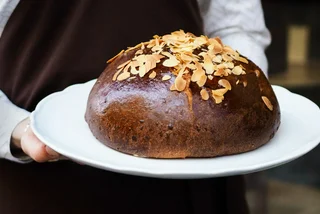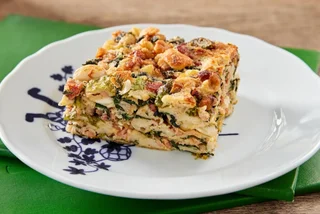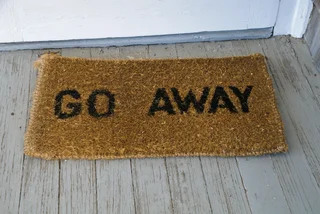Easter is the second most popular Czech holiday. And while it has a number of folk traditions associated with it, a new survey found that the holiday is primarily associated with friends, family, and food.
Online supermarket Košík.cz interviewed 1,350 Czechs to find out which customs they observe and what they eat on the Easter holiday. Responses shed light on how traditions are changing and how Easter will be celebrated in the Czech lands in 2023.
For the Czechs, Easter is most often associated with the two things they love most: time spent with family, and friends and the celebration of nature waking up to the first weeks of spring.
"At Easter, the whole extended family comes around. Aunts, uncles, lots of people that we don't see a lot all year. It's always amazing when it's nice, we run around outside, and the kids are overfed but happy. Everywhere we go, we taste something. After lunch we go for the traditional walk, often ten or fifteen of the family, mums on sticks, uncles with hats teaching the kids to make whistles. And if it's nasty, we'll just snuggle up in front of the TV. We make pomlázka one year, buy pomlázka the next," said Petra 39, from Karlovy Vary.
Folk symbolism more important than religion
While Easter Monday is a based not so much on Christian religion but folk customs, some Czechs still have memories of attending church.
"I remember when I was a kid, going to church with my dad to mass. Now I like to go to the garden, sit on the bench and watch nature waking up. I'll invite the neighbors, and friends, we'll see each other for the first time after the winter. We'll have a toast to each other. The older I get, the more I enjoy it," said Jarek, 45, from Ostrava.
The survey found that this increasingly casual approach to the day is more common and that the traditional Easter celebration, which is tied to dozens of rituals, is gradually being abandoned by Czechs. Forty-nine percent of households in the survey admitted that their traditions are simply taken as symbolic and not practiced with much gusto.
- The whipping tradition, involving a stick made of woven wicker branches with ribbons at the end called pomlázka, has become a divisive topic in recent years.
- The tradition sees men beating women with the stick on Easter Monday, presumably for good health. Men receive eggs, sweets, or, even more frequently, a glass of slivovice in return. However, many women have been saying they were left traumatized by the heavy-handed approach of some men. Many men, on the other hand, see the custom as harmless fun.
- Martina Jandlová, press spokesperson of the Brno Diocese, dismissed the idea that the tradition is connected to Easter, adding that its enjoyment is a "matter of personal preference." “Easter ends on a Sunday and Easter Monday is not a Christian holiday or a matter for the Church," Jandlová added for Stisk Online.
- In the past, women paid off the whippers by pouring water on them, a tradition that has gradually died down.
- Read more in our article.
"Fifteen years ago I was even meticulously making Easter eggs for people but now no one rings the doorbell anyway. I'll make two or three with my granddaughters just for fun, and then we'll hang them on ribbons on the ficus tree. I'd rather go for a walk or buy some cake to take home," said Jana 68, from Central Bohemia.
Despite the current inflation, Czechs aren't skimping on Easter. A typical Easter celebration costs an average of CZK 2,000 this year.
An Easter feast is a must
Two-thirds of households have a lamb cake on the Easter table, and more than half of households dye eggs or make Easter eggs, either as decorations or for carolers who come by. Baking Easter stuffing is also a must. When it comes to the Easter beverage of choice, Czechs surveyed were evenly split between beer and wine.
"I enjoy stuffing. I'm from a Prague family, and we never celebrate holidays. But about four years ago I had a roommate in Brno who brought stuffing and I've been making it every year since," said Štefan, 27, from Prague.
Jirka, 56, from South Bohemia, celebrates Easter with a beer-tasting tradition, "We always buy beers from smaller breweries and do a tasting. Last year I got a tasting set. It's a nice tradition."
Those who host friends and relatives over the holidays said they spend more, believing a well-equipped pantry is a basis of a nice celebration. In contrast, median spending was CZK 1,600, which shows that many households celebrate modestly.
The vast majority of households surveyed calculate that they'll be paying around 500 extra this year. A third of them are even counting on spending an extra CZK 1,000. And this is mainly because of the ingredients for cooking and baking, milk, sugar, and butter, but also the price of eggs or meat, for example. And, of course, alcohol.
Another interesting trend is that Czechs are increasingly spending Easter away from home. They are drawn to the countryside: most often to their own cottages or that of relatives. And it's not just the people of Prague or Brno; those from the regions are also disappearing into the awakening meadows and groves.












 Reading time: 4 minutes
Reading time: 4 minutes 

































